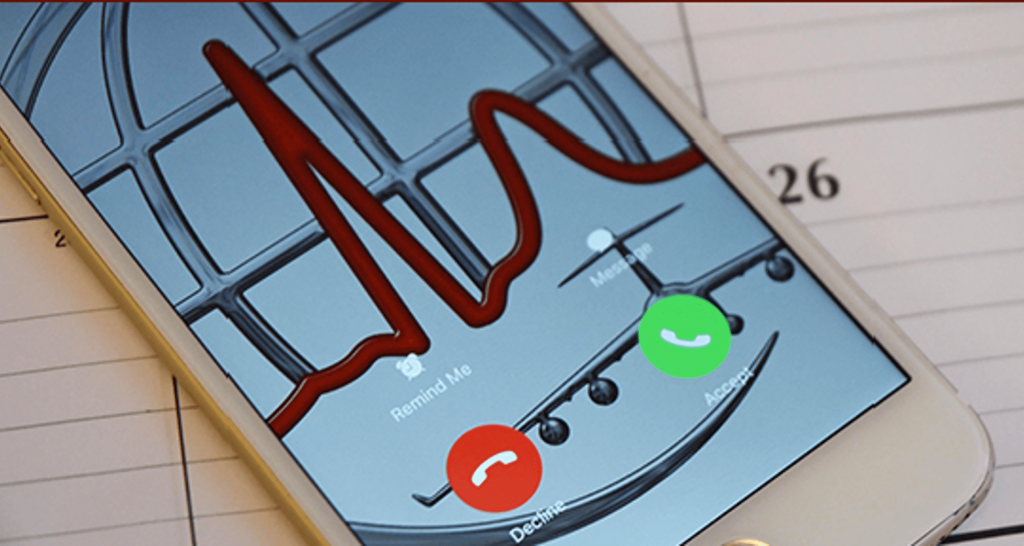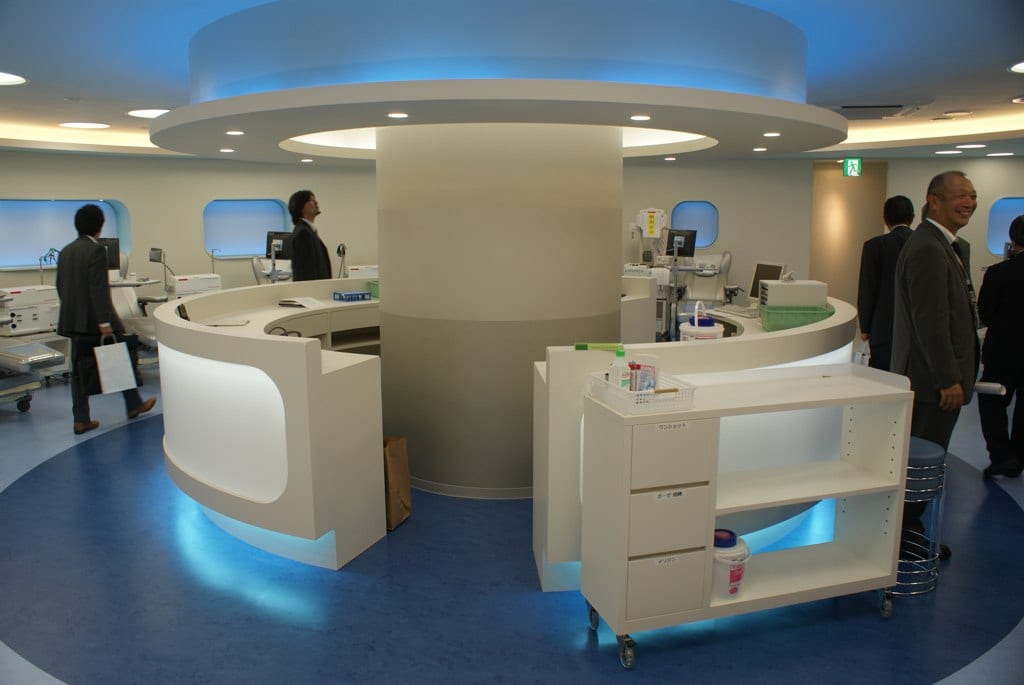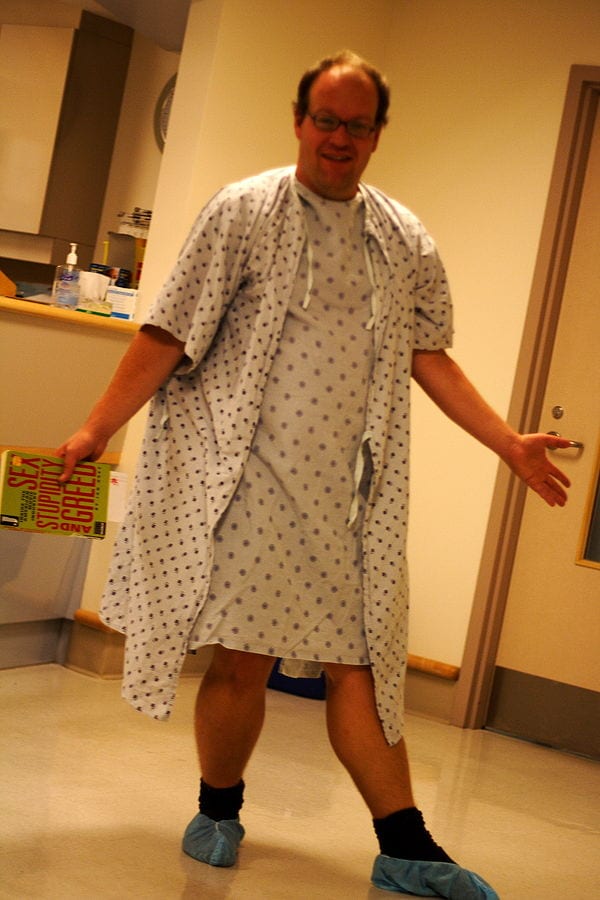
Healthcare lessons from other industries: easy access to a doctor
Health services should put patient convenience first
“The first rule of any technology used in a business is that automation applied to an efficient operation will magnify the efficiency. The second is that automation applied to an inefficient operation will magnify the inefficiency”; Bill Gates
How many times have you tried an online platform to book a hotel before going on vacation? Have you also tried the “online chat option” to design the trip and get better choices/deals? I guess you did – if so, then how was your experience? I’m guessing it was pretty good.
Back in the old days, in order for someone to get an advice or a consultation, they usually needed to go in person i.e. physically meet someone and spend time, money and effort to get a consultation/advice/offer. Nowadays, you can get all this with a click in your mobile or PC and interact with voice, text chat, and sometimes video with a representative whose job is to listen to you, engage you in the product or service and give you the best deal. Again, if that’s possible in many industries e.g. tourism, food, cars, then is it applicable in healthcare?
Avoiding the surgery
On 2nd October 2016, an article published in the Guardian with a title of “The doctor will see you now …. On your smartphone” showed the practice of introducing the online doctor consultation practice through an application over smart phones. Babylon Health, an application that provides an online consultation with GPs in UK over smart phones. Ali Parsa, the founder of Babylon, said “Our purpose is to democratise healthcare. We are going to put an accessible and affordable health service into the hands of every person on Earth.”. What an ambitious goal!!
In a pulse survey run in 2016, the average wait for a GP appointment in UK is around 13 days, despite measures introduced by the NHS to alleviate pressures on general practice. It also reveals that more than 40% of patients are having to wait longer than 14 days for a routine appointment.
Babylon is not the only player in this market. Push Doctor, founded by Eren Ozagir, claims to be the largest service of its kind in Europe, with about 7,000 NHS doctors in its network. It came about, apparently, after Ozagir fell sick on a trip to the US and bemoaned the fact that you could organise a taxi, a boat, even a helicopter through your phone, but not a doctor. Push Doctor does not attempt to triage or diagnose patients, but instead puts them straight in touch with GPs doing consultations during the time they could otherwise be doing private practice. An appointment costs at least £20 and a premium membership is the same price per month. Other players in this market include Now GP and GPDQ (GP delivered quick). GPDQ can arrange for a doctor to come in person to a home, office or hotel in central London between 8am and 11pm, 365 days a year. The average wait is about 90 minutes. Imagine; 90 minutes vs. 13 days!!
Is it going to replace the physical Doctor?
The core message of these services is that they are not threatening the NHS but working alongside it to reduce the burdens it faces coping with a growing and ageing population. The development also fits with the idea that millennials now expect all their services to be streamlined and efficient: from getting the new ramen joint to deliver via Uber to having your dry cleaning picked up from your desk. David Mott from Oxford Capital, which raised £8.2m in funding for Push Doctor, even suggested the NHS should be left to the elderly and infirm, while time-poor 18-40-year-olds use the new app-based services. Makes sense, doesn’t it?
The wait is over …
That’s the promise online platforms offer to its patients. But who are those patients? Let’s take Push Doctor as an example. They say that the service incudes prescriptions, sick notes, child consultations and GP referrals. They treat conditions like mental health, sexual health, colds and flu, skin conditions, joint pains, digestive problems, ear & eye problems and allergies. When it comes to diseases, they claim that they treat urinary tract infections, anxiety, asthma, flu, cystitis, tonsillitis, depression, back pain and acne. If I am not mistaken, this accounts for more than 50% of GP visits (and/or A&E sometimes). It is also claimed that all services are regulated by the Care Quality Commission (CQC) an independent regulator of health and adult social care in England with a core responsibility to make sure health and social care services provide people with safe, effective, compassionate, high-quality care and encourages care services to improve.
This practice is not only implemented in UK and USA. Online Medical Platform (OMP) is offering its services as a premier website for eHealth services in Uganda in Africa. Their services range from online patient-medic consultations, e-prescribing & medications delivery and e-finance management of medical practices. This means that it is becoming a global practice.
Is it safe? Is it a workable solution?
Let’s listen to the Voice of the Customer. Babylon Health is claiming that their average rating review is 4.8 out of 5. They have got more than 40K five stars ratings, and a 94% NPS (Net Promoter Score). Push Doctor also claims that it has been rated 7.9 out of 10 based on 1,650 reviews. GP at hand, which is a new platform powered by Babylon, states that they have a 96% satisfaction score. This means that it works.
I believe it is now clear when it comes to the pros of using such kind of technology to get a consultation with a doctor. On a personal level, having access to a qualified doctor while being at home, in your couch and; avoiding the hassle of going out, driving your car, find a parking and waiting for around 30 min to one hour and then get your prescriptions and collect the medications; is by far a better option. At a national level, there is no study or analysis to compare the overall impact (whether financially or in terms of healthcare outcome) to using such services.
However, from a patient experience, it proves by example that it is a workable solution. Patients are happy, they get the service, they are seen by qualified doctors at a reasonable cost and they avoid waiting for an appointment in the first instance and avoid the hassle of a journey. That’s a perfect fit for any patient, isn’t it?
Way Forward … Healthcare should learn from other industries’ success
In our view, introducing technology in healthcare is becoming a MUST. Healthcare professionals need to widen their scopes when it comes to the future practice of medicine; Technology is emerging in every aspect in healthcare from just reviewing a patient (like what we shared above) to full surgical procedures operated by trained robotics. The involvement of Artificial Intelligence in healthcare will make it easier, more affordable and accessible to many patients. Therefore, welcome to a new era of technology in medicine.
We will continue to share with you how initiatives that have been implemented in other industries are applicable in healthcare. We really appreciate your interaction, sharing your personal experiences and views on whether this is applicable in healthcare and, if yes, is it going to improve the overall patient experience without impacting the outcome or not.
About Author:
Haytham Soliman is a GMC registered orthopaedics surgeon with more than 10 years of clinical experience, trained in Orthopaedics Surgery with special interest in Sports Medicine. He is an advocate of applying quality control measures, evidence-based medicine and updated clinical research in his practice. He also has 8 years’ business and managerial experience with Bupa Arabia as a Customer Experience Excellence Leader. His expertise includes project management, cost containment strategies, strategic partners’ relations and customer experience excellence protocols. An ex-professional athlete, he has a passion for sports and is currently participating in amateur level triathlon competitions.





